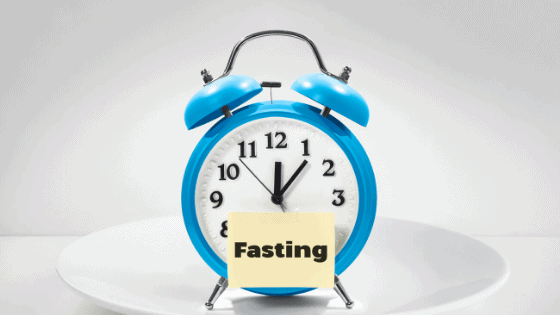
15 Jan Fasting Health Benefits – Should You Fast?
What is fasting?
Fasting is when you go for a longer period of time without eating. It can be anywhere from 12-24 hours.
Fasting doesn’t have to be as hard as you think it is. You can simply stop eating at 7pm (after dinner) and eat a breakfast at 9 or 10am to get 14 or 15 hours.
In our ancestors, fasting wasn’t an unheard of thing. Before we had fridges and food preservation, they only had food of what they could harvest and hunt at the time. Seasons change, which limited some types of foods, and all these natural processes actually made fasting a part of life.
Health Benefits of Fasting
When we fast, our body is able to focus on repairing, fixing, and doing all the “under the hood” work without having to divert energy into digesting food.
Studies show that HGH, human growth hormone, increases during fasting. This can help with gaining muscle and helping burn fat. It also lowers levels of certain growth factor hormones, like IGF-1. IGF-1 has been shown that the higher rates of IGF-1 you have, the higher risk of certain cancers. The signals by insulin or IGF-1 can promote tumor development by inhibiting apoptosis, and by stimulating cell proliferation. Regulating insulin can help your body utilize stored glucose (glycogen) and fats for energy.
A study that was done in the Nutrition Research Journal showed that fasting also helped decrease inflammation by suppressing pro inflammatory expressions and decreased body fat.
Fasting also showed an increased production of BDNF (brain derived neurotrophic factor), which increases the resistance of neurons becoming dysfunctional.This ultimately protects us from neurodegenerative diseases.
Should You Be Fasting?
Fasting for long periods of time isn’t for everyone. I do believe we should always aim for an overnight fast, so dinner around 6pm should be the final meal of the day and wake up and eat breakfast 12-13 hours later. This will fall between typical breakfast time. Remember: FASTING DOES NOT HAVE TO BE CRAZY LONG CAUSING YOU TO SKIP A MEAL. We do have to eat enough throughout the day to encourage long-term healthy metabolism. From clinical practice, fasts that range between 12-14 hours do great with women in their reproductive phase of life.
If you aren’t sleeping good or super stressed out, I would not recommend fasting for a long time, such as beyond the overnight fast. That could turn fasting into a negative thing and put more stress on the body. If you’re interested in it, you have to make sure that you’re getting the right amount and quality sleep and your stress levels aren’t chronically high.
If you’re feeling okay hormonally, fasting for longer amounts of time is okay a couple times throughout the week. Doing it for long periods of time every single day can increase stress hormone in some women, so make sure you’re staying in tune with your body and the season of life you are in.
It’s NOT recommended for women who are nursing or pregnant. These are both seasons of life that require intense nourishment.
If you’re ready to figure out your personal health journey, head over to our Services page, where you can book a free 15 minute appointment with us! We’ll go over your next steps + learn a little bit about you + before you know it, you’ll be reaching your goals!
Remember, there is NO one size fits all diet + lifestyle!



